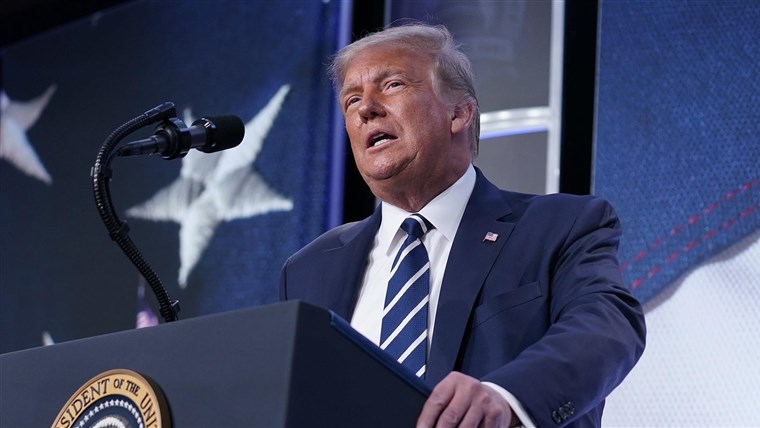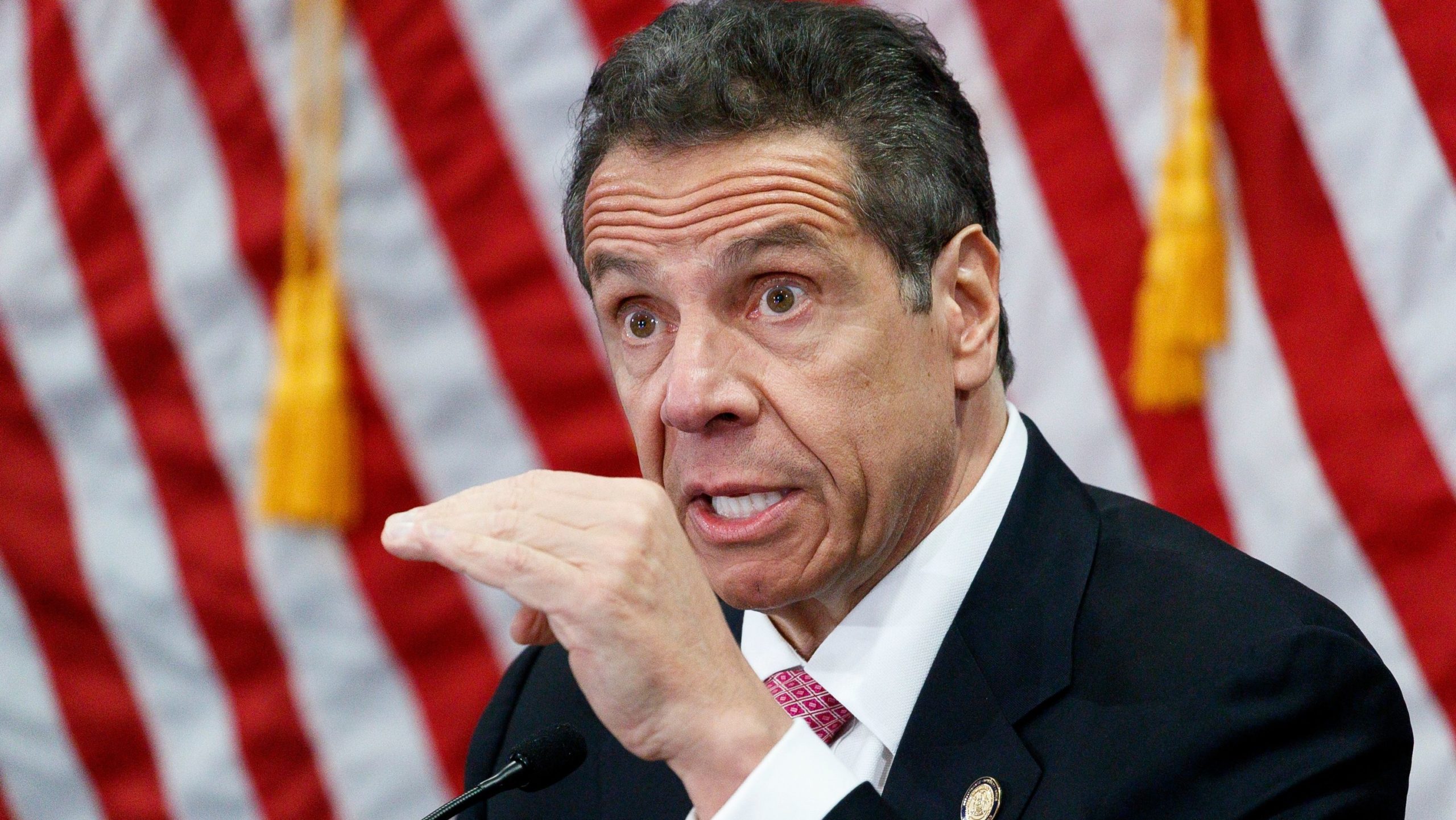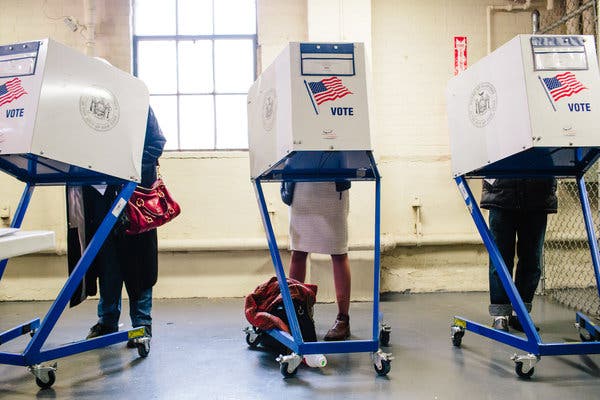WASHINGTON — Several rows of stage lights could be seen peeking above the colonial style windows of the West Wing when the sun rose Friday as the atmosphere of the White House began to transition, for the first time, into a purely political venue.
Behind the scenes this past week, campaign and convention staffers began work on the White House South Lawn setting up lights, speakers and a stage that would be used for President Donald Trump to deliver his acceptance speech as the Republican Party’s presidential nominee. Trucks brought in long metal poles and beams, and construction equipment was set up adjacent to the Rose Garden.
It is unprecedented in modern politics for the White House to be used as the site of an explicitly political event, with past presidents maintaining some boundaries between the office of the presidency and their re-election bids.
Trump has been smashing those norms for months — attacking Democratic rival Joe Biden from the Rose Garden and playing campaign-style videos in the White House briefing room — but his prime-time convention address will represent the most blatant blurring of the lines yet.
In suggesting the White House for his acceptance speech after surging coronavirus cases forced him to cancel plans for a large in-person convention, Trump said earlier this month it would be “a very convenient location that would be by far the least expensive location. There would be very little in terms of that tremendous traveling, security with airplanes and everybody flying all over the place. I think it would be a very convenient idea.”
But since the convention speech is a political activity, the expense of traveling to deliver it would have been borne by Trump’s campaign, not taxpayers. The potential cost and inconvenience also didn’t stop Trump from making four other campaign stops across the country this week in Pennsylvania, Arizona, Minnesota and Wisconsin.
Most of the setup at the White House has been kept out of view. The windows on a pair of French doors facing the Rose Garden that reporters can typically see through were covered. At one point Friday, the doors were briefly left open, providing a view of construction equipment and workers milling about.
Days of construction on the White House grounds even upended the president’s usual routine. Trump was unable to take the Marine One helicopter Thursday to Andrews Air Force base, motorcading instead.
The stage setup with overhead lights appeared to be half the height of the White House and resembled that of an outdoor music festival, with large speakers off to the side. Unlike Biden, Trump is expected to have a visible live audience for his remarks that will include members of Congress.
At least one other convention speech will be made from the White House grounds with first lady Melania Trump expected to make her speech from the recently renovated Rose Garden. The nearby Trump hotel will serve as a workspace for convention staffers.
Trump had pushed to hold an in-person convention, first in North Carolina then in Florida, but abruptly canceled those plans just over 30 days before it was set to begin, sending staffers scrambling to come up with an alternative plan. It was only on Monday that Trump announced he had settled on the White House for his speech.
The Trump campaign and Republican National Committee have said they will reimburse the federal government for any taxpayer resources used.
White House lawyers have briefed staffers on what they can and cannot do as part of the convention planning and participation, and White House press staffers last week were quick to say they had no involvement in the convention planning outside their office doors, telling reporters to direct any questions to the Trump campaign.
These government staffers are technically covered by the Hatch Act, which limits the political activities that federal employees can engage in to ensure that federal policies are carried out in a nonpartisan fashion and to protect federal workers from political coercion.
But some aides acknowledged it’s a difficult line to toe.
“Even in unprecedented circumstances — it looks bad,” conceded one Republican official.
After ethics concerns about the event were raised by members of Congress, Erica Hamrick, the deputy chief of the Hatch Act Unit for the Office of Special Counsel, issued a memo saying there were no issues with Trump delivering his address from the White House, since he and the vice president aren’t covered by the Hatch Act. But she did have a warning for other staffers involved in the event.
“The President and Vice President are not covered by any of the provisions of the Hatch Act. Accordingly, the Hatch Act does not prohibit President Trump from delivering his RNC acceptance speech on White House grounds,” Hamrick wrote. “However, White House employees are covered by the Hatch Act, so there may be Hatch Act implications for those employees, depending on their level of involvement with the event and their position in the White House.”
She said employees would not be able to assist with the proceedings or attend while they are on duty or if it were to occur in a federal room or building. But the Hatch Act wouldn’t apply if the employees did so on their personal time and if the event were held on the White House lawn or in the residence.
It’s an opinion top Trump advisers have embraced.
“I’ve been helping in my personal capacity, and I’ll be speaking myself,” said White House counselor Kellyanne Conway when asked about what to expect from the convention. “I think that you’re going to see and hear from many Americans whose lives have been positively impacted and measurably and consequently changed due to the efforts and the policies of President Trump and Vice President Pence.”

 Shannon Pettypiece
Shannon Pettypiece

